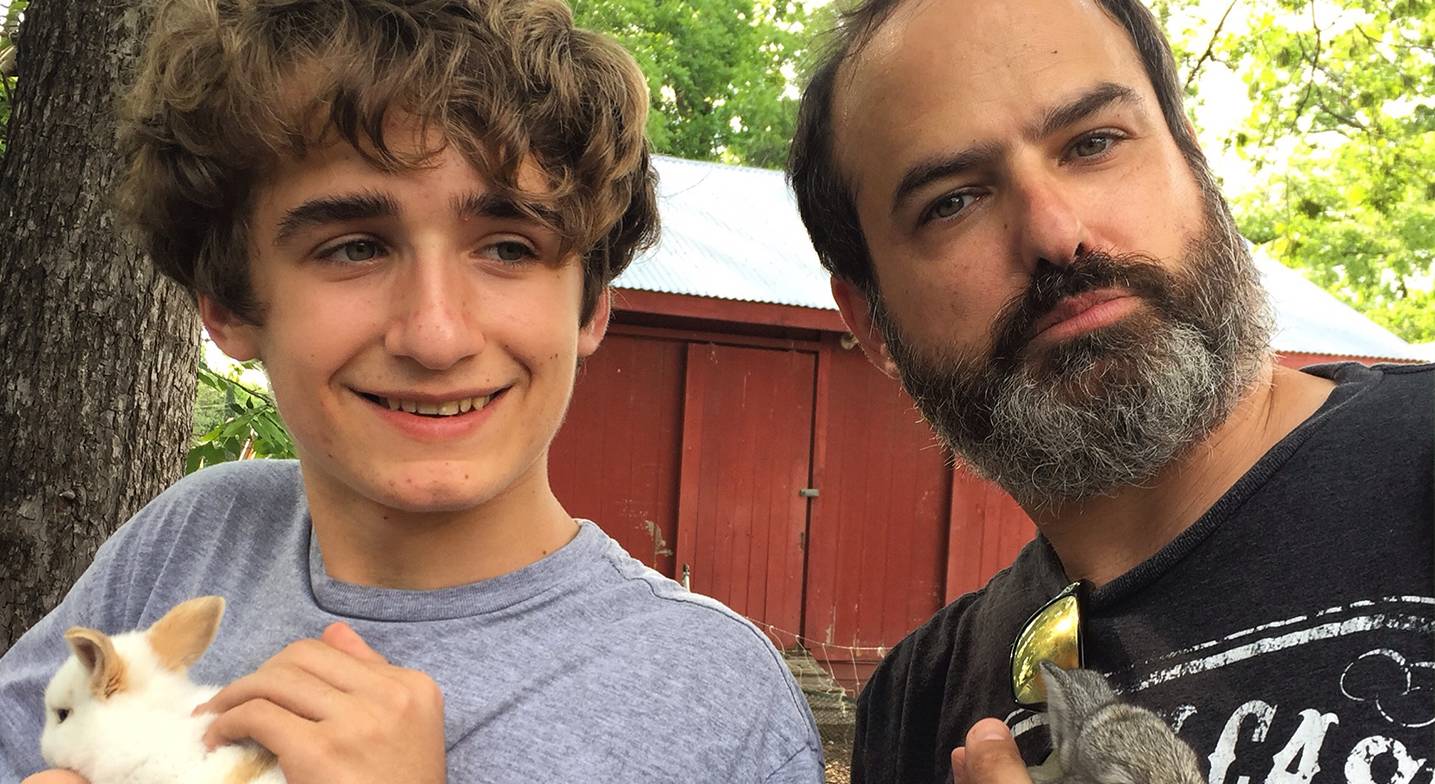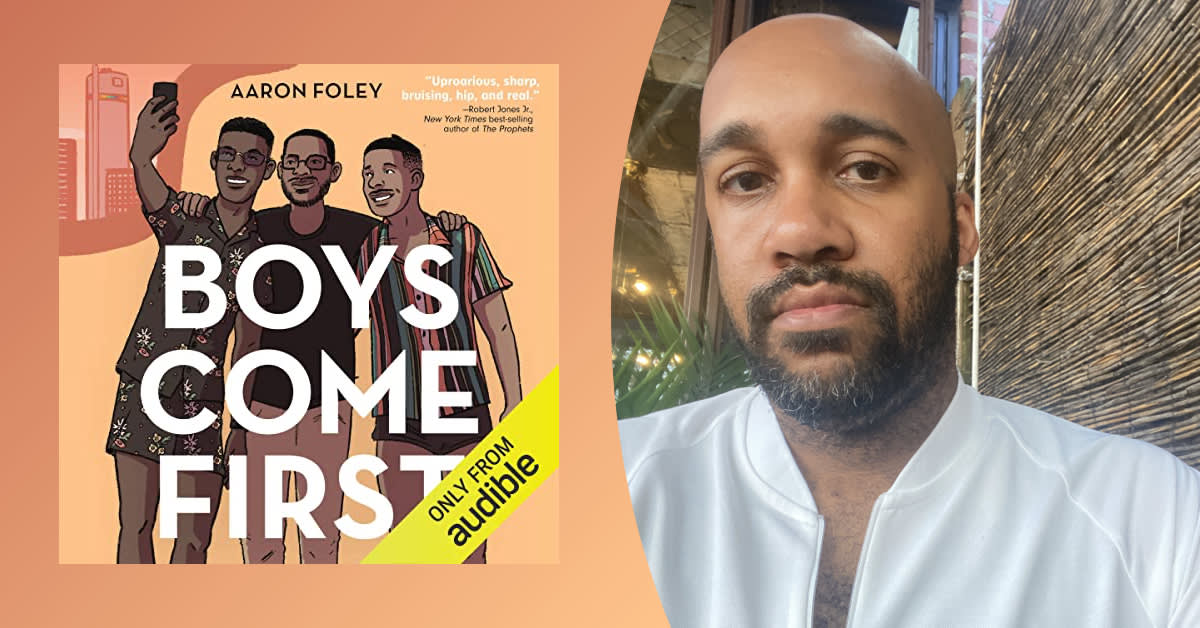I often refer to my podcast, Extra Credit, as "hipster homeschooling," though that's not entirely accurate. Sure, I'm a hipster by trade, and have been for almost three decades. But I'm not purely homeschooling my son Elijah. Neither he nor I would survive being at home together all the time. Also, the public school near us does a decent job, so pure homeschooling isn't necessary.
In general, people homeschool because the schools aren't religious enough, aren't nurturing enough, or, in the case of a friend of Elijah's, they're just too advanced for the curriculum. Elijah, while really smart, is also a little lazy, so an "advanced" curriculum beyond what the schools offer would be met with resistance from him. And, let's face it, I'm not qualified to teach him trigonometry, Spanish, theoretical physics, or anything much more than how to read a novel and complain about it on Twitter.
The schools do the specialized subjects well enough. He's learning math, languages, map-reading, Excel, and all the other stuff I don't want to bother teaching him. However, it's not sufficient. Extra Credit is like an extended field trip, where I, as a parent, fill in the intangibles that the schools leave hanging.

With that in mind, here are some basic tips for parents who may also want to supplement the basic curriculum at their local school:
1. Go beyond book learning.
First, you need to provide them with materials outside of textbooks. For various reasons, schools don't have comprehensive resources, and what they do have are often inadequate. They're often teaching to standardized tests, so there are extreme limits to what they're allowed to present.
What students learn often depends on regional politics. In Texas, where we live, it's required that slavery get listed as "just one cause" of the Civil War. There's also an ongoing debate about ethnic studies curriculums, and our Board of Education just narrowly approved a Holocaust memoir for the curriculum, a topic that should hardly be considered controversial at this point.
The schools are about 30 years behind when it comes to social topics. When it comes to sex education, for instance, Elijah's district is "abstinence only," a limited curriculum that often provides inaccurate information and creates a climate of fear. To supplement that, my wife and I enrolled him in a comprehensive, sex-positive curriculum at our local Unitarian church. He got (age-appropriate) materials that he will never receive at school.
2. Pop culture is important, too.
Supplementing doesn't always have to be serious business. You should give your kids, at any age, books to read, music to listen to, and movies to watch, take them to the theater, to dance performances, anything and anywhere you can. My mother brought me to a production of A Midsummer Night's Dream when I was 11 years old, which started me on a lifelong love of the theater. When I took Elijah to see The Book of Mormon and the Upright Citizen's Brigade production of ASSCATT3000 in New York last summer, it was just a cool-guy updating of my theatrical adventure.
3. Expose them to the people who are doing it best.
In addition to those standard and timeless experiences, it's important to take your kids to meet experts in the field. Most school "field trips" now are mostly harmless and politically neutral sports days in the park to get the kids away from the academic grind. Extra Credit takes that concept deeper.
To study Judaism, we visited rabbis and scholars in their offices. In our "poetry unit," we met a Puerto Rican poet in the park on the Lower East Side. To counter Texas' lack of Mexican-American studies, we met an undocumented valedictorian and interviewed a Chicano comedy rapper. Because of his district's ludicrous and dated "Just Say No" drug awareness campaign, I took Elijah to Colorado to meet an 11-year-old girl from Texas who's become a "refugee" because she needs medical marijuana for her intractable epilepsy. These were people who could give Elijah real talk, and a real education.
The topic of slavery was the impetus for the entire show. It's ludicrous that teaching slavery is controversial in public school. So, we took a road trip from our home in Austin to Houston to visit a black academic and her teenage son who are protesting flaws in the Texas curriculum. From there, we headed to New Orleans to get a private tour of a former plantation that's been turned into a slavery museum. Of course Elijah thinks slavery is bad. But because of the work we did together, he now knows true historical facts about how and why.
4. Redefine "education."
What you expose your kids to will vary based on your own interests, resources, and geography. Because of the podcast, I was able to expose Elijah to the wider world. This summer, we took a yoga lesson from a teacher in Los Angeles. There was got a poker lesson from a professional poker player. We interviewed British punk-rock legends in Chicago. Most excitedly for me, went to the Vermont Cheesemakers' Festival. Not everyone needs to be interviewing Chicano rappers. But those are kinds of experiences that I wish every schoolchild should have.
Education isn't just about what you learn in the classroom. It's the sum of your life's experiences. Our school system limits kids, plugging them into existing systems and not exposing them to the broader world. I will never be able to teach my son how to measure a right angle, or diagram a sentence, or, god forbid, do a declension in Latin. Those are all things best learned in school. But I can expose him to different kinds of people, situations, and airports, and show him that life has far more possibilities than what school prevents.
Or, as Hamlet says, "There are more things in heaven and Earth, Horatio, than are dreamt of in your philosophy."
Not that Elijah would know that quote, though.
His school doesn't get to Hamlet until junior year.





